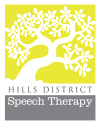⚠️ IMPORTANT: If your child presents with choking, frequent coughing after eating/drinking, and or recurrent chest infections, please discuss with your GP/Paediatrician before consulting our feeding team.
Our Approach to Paediatric Feeding
At Hills District Speech Therapy, our feeding assessment and intervention services are underpinned by 5 key principles (Feeding Flower) outlined in the NSW Health (2016) Guide for Feeding Difficulties in Children.
Our therapists work collaboratively with and for the child, along with their family/caregivers. We work hard to ensure the child’s feeding needs are being met, the family’s cultural values are acknowledged in the therapy process, and that the mealtime ‘dance’/experience is a positive one for all involved. We also work alongside other professionals – general practitioners, paediatricians, occupational therapists, physiotherapists, dieticians, lactation consults and psychologists to ensure the child has been comprehensively assessed and parental concerns around feeding have been heard and adequately addressed. We also offer where and when possible, individualised parent education and training to ensure a supportive mealtime environment is created for and with the child.
Our therapists use a range of strategies from several intervention approaches, with most approaches underpinned by the Responsive Feeding framework and Ellyn Satter’s Division of Responsibility.

What is Responsive Feeding?
Feeding therapy services can be delivered in usually one of two approaches; a behavioural approach, or, a responsive feeding approach that gently fosters development of feeding skills through trust and discovery without pressure. HDST strongly supports the use of a responsive feeding framework when working with our feeding clients, but also appreciate the importance of individualising services and considering that one approach may not always work.
“Successful feeding demands a division of responsibility. Parents are responsible for the what, when and where of feeding; children are responsible for the how much and whether of eating.”
– Ellyn Satter

When should my child see a feeding therapist?
The following features may suggest your child requires further evaluation/referral to a speech pathologist with more specialised training in feeding:
- Poor seal on bottle (fluid loss, weak suck)
- Nasal regurgitation
- Your child is only feeding when asleep, sleepy or distracted
- History of traumatic brain injury
- Delayed transition to solids or transition to lumpy/table foods.
- Difficulties with chewing
- Delayed motor milestones
- Medical history including prematurity, gastrointestinal, neurological, structural or cardiorespiratory factors
- Significant family history of feeding problems or medical/developmental/allergy
- History of asthma, eczema, and/or hayfever
Our Feeding Team
Our Feeding Team bring combined experience and training in supporting infants, children and young adults with feeding difficulties. Our therapists have combined trainings in the Get Permission Approach, AEIOU Integrated Approach to Paediatric Feeding, and further training detailed in their bios.

Reta van Rensburg
Clinic Manager & Senior Supervising Speech Pathologist

Remona Mekdessi Sarkis
Team Leader & Senior Supervising Speech Pathologist: Providing telehealth based feeding services
More Information
The Sydney Children’s Hospital Network have a wide range of factsheets available to health professionals and caregivers on a range of topics. Check out these helpful handouts below on infant and toddler feeding:
